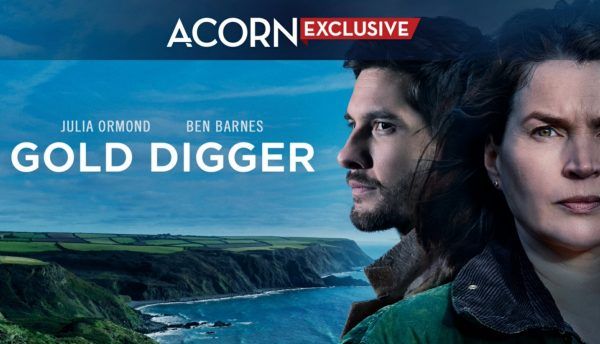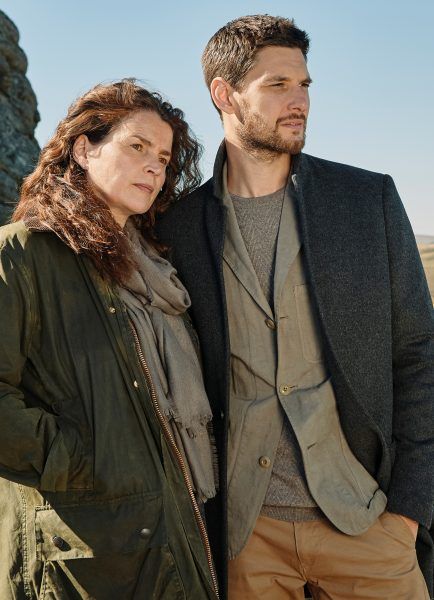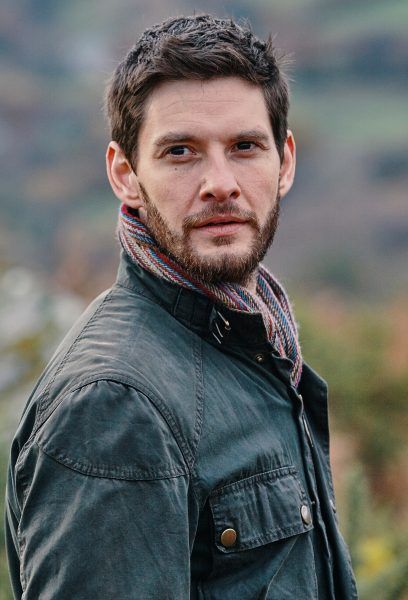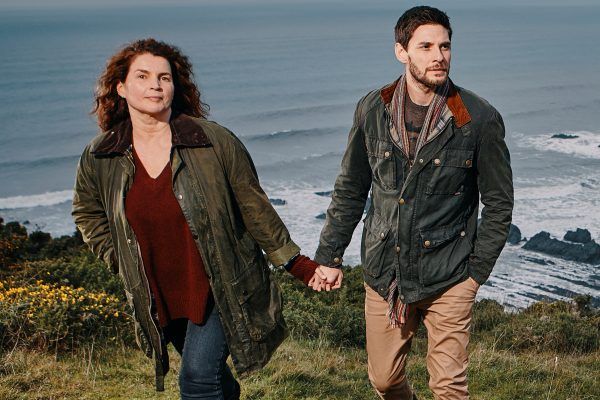Created and written by Marnie Dickens, the six-episode BBC twisty drama Gold Digger (available to stream at Acorn TV) follows Julia Day (Julia Ormond), a 60-year-old woman who has spent her life putting the needs of others, including her ex-husband and their now adult kids, ahead of her own. Unsure of her place in the world, Julia meets Benjamin Greene (Ben Barnes), a man 25 years her junior, who she believes that she’s finally found happiness with, until she begins to question his true motive.
During this 1-on-1 phone interview with Collider, British actor Ben Barnes talked about why he was so excited to be a part of telling this story, why he felt the ending need a little bit of tweaking, the biggest challenge with playing this character, the prejudice that still seems to come with such an age difference in a relationship, and how they approached developing the intimate relationship between their characters. He also talked about his upcoming Netflix TV show Shadow and Bone, why they’re combining the material from multiple books in the series that it’s based on, shooting in Budapest, and the tone that they’re aiming for.
Collider: Especially after having last seen you in The Punisher, this show and role seems like a change of pace for you.
BEN BARNES: Yeah. I hadn’t done anything in the UK or played a British person in 10 years, and having read these scripts, I was just really excited to be a part of telling that kind of a story and playing a character that felt a bit closer to home, maybe. Particularly for the second season of The Punisher, I had a goatee and a shaven head and I’d been in the gym, and I felt as far from myself as I’d ever felt. And then, going straight onto this, it was an interesting challenge. I’d enjoyed reading the scripts so much. With how they were put together, they felt so British, and I found them very compelling and charming and enticing.
Because this is one of those stories that has a lot of layers to it, that keep getting peeled away, as you go through the season, up until the end, how much of the story were you able to read and learn about, from the beginning? Did you know where this whole journey would go?
BARNES: Yes, I read all six episodes, on one plane journey, actually. It felt like reading a novel. I was desperate to know. It can be peeled away like an onion, and you reveal characters’ histories and personal connections and secrets, as you go through, and there’s also this very basic pull through the story, which is, is this man a manipulative liar with an ulterior motive, or is he just a very open-hearted, open-minded guy who has a past, but is trying to be a different kind of person, and just be loved and love. It actually had a different ending, when I first read it. One of the nice things about having done this job for so many years now is that I said, “I’d love to do this, but I’m not sure about the ending. Can we have a chat about it?” And luckily, the writers and producers were very open to redefining the ending a little bit. We wanted it to reflect what the story had been, a bit more, and they came up with a much more subtle ending, which I was really pleased about having had a hand in. But yes, I did know the basics of it.
In regard to changing the ending, was that a feeling that you had, from the first time you read the script, or was that something that as you started to think about, after you finished it?
BARNES: I just instinctively got to the end and went, “Oh, I was more hoping it would be more like this.” As I went through it, I realized that the audience is gonna be a big character in this, when it comes to casting judgment and dispersions on this relationship, and the relationships between the kids and the parents and the exes, and all of that. You really become a character because you can’t help but judge, and then you ask yourself why you’re judging it. Is it because of an age disparity? Is it because of their relationship? Is it because of their history? At the end, I just thought it’d be really interesting to have that question mark of, why are you still judging this, based on everything that you know? I thought that was a really interesting point that all of the scripts had made, but that the ending didn’t really highlight. So, it was just about wanting what it already was. It wasn’t that different. It was just the last couple of pages. And I just thought that was wonderful that they were open to hearing me out about that. I felt that scene was really important.
You talked about what made you want to play this character, but what did you see as the biggest challenges in playing him?
BARNES: Well, that was the other thing. When I first read it, I immediately realized that there was a very difficult task, which was that every scene had to be readable, two ways. Every scene has to be readable as if this person is telling lies and manipulating the people around him, and desperately getting the family out the way and inheriting the family treasure, and it also had to be read like he’s someone who really just has a little bit less judgment than the rest of us, and that something has happened in his past where he’s just open-minded and open-hearted, and is desperate for the love of this woman, who he just wants to love in return. Is it a too good to be true scenario, or is it the worst nightmare scenario, or is it somewhere in the middle? To me, the challenge was really to try to make sure that every scene was readable, in every way, rather than feeling false.
Were the characters always named Julia and Benjamin, or were named after you guys, once you’d been cast?
BARNES: I think that was just a coincidence. When I was sent the script, they were called Julia and Benjamin. For me, it was actually very important that all of the characters called him Benjamin instead of Ben. Benjamin was the name that my folks would shout at me, if I was in trouble, when I was five, so I was very keen for this character to be Benjamin and for me to be Ben on set. Archie Renaux, who plays Leo Day, and who’s also in the new TV show (Shadow and Bone) that I’m doing, called me Ben in a scene, at one point, and I just stared ice at him and went, “It’s Benjamin.” I just couldn’t help it because that wasn’t the character.
It’s so interesting and obviously quite sad that there’s still a prejudice against the age gap in a relationship like this, between a younger man and older woman, ‘cause it doesn’t seem to be there in the reverse. Why do you think it is that age gap dynamic is something that we just can’t seem to escape?
BARNES: I think it’s something which is slowly moving. It’s obviously really important to just have every facet and person in society represented, in media and on television. That was a draw for me. It was this very fully realized character with a past and a future and a sexual future that was being represented on screen, with all of the ways that she identifies. She says, at the very beginning, “I’m a mother, I’m a daughter, I’m an ex wife, I’m somebody with a real life that’s more than one thing.” When I read it, I was like, “This is not something that’s the front and center of stories enough.” And then, you realize how every film that you saw, growing up and even now, is usually an older man and a younger woman, and you just get used to it. It’s about the judgment that we cast on that. When the show came out in England, we discussed the fact that, historically, the judgment is always placed on the woman. If it’s an older woman and a younger man, she’s a cougar. And if it’s an older man and a younger woman, she’s a gold digger. It’s based on gender and sexism, essentially, and that takes a long time to change. I think more recently, we’ve entered a phase of, “If it makes you happy, then do that.” We are edging towards something more accepting of age gaps, no matter which way around they are. Somebody asked me, when we were doing [press], “How old would you date someone?” I thought about it and realized that you would never ask me how I would date someone. So long as it’s mutual and respectful, and all of those things, then it really shouldn’t mess up. I found the whole topic really interesting to delve into. What’s wonderful about doing this job is that sometimes you learn a new skill or you go to incredible places that you wouldn’t otherwise visit, and sometimes you just have these conversations that you might not otherwise be having, and hopefully inspire those conversations around when people watch it, as well. That’s what TV should be about.
You were able to wrap production on Shadow and Bone in Budapest in February, so you were able to finish the series before production got shut down.
BARNES: We just finished it, yeah.
What was it like to spend six months shooting that series, in that location?
BARNES: In the end, it was wonderful. I loved the cast. It’s this very vibrant, young, exciting cast that they found for these characters. I read the book, in the weeks leading up to shooting, and when I met them, I knew exactly who everyone was playing. They really jumped off the page at me, and that was really exciting. A lot of my career, I’ve last minute been sent to places, for five months or six months or seven months, to go and shoot things, and the way that I experience a place is very much linked to my experience of shooting that thing and making that thing, and how worthwhile it feels, and how fun it is, and how I get on with the people and the crew involved. For me, by the end, I loved Budapest. We were really excited about what we were making. That, in turn, inspires you to be a bit more adventurous with the place that you’re living, on the weekends. Budapest is really beautiful. We describe it as czar punk, like steampunk but with a Russian element to it. Budapest feels like this very exotic place, in some ways, in terms of the architecture and the palaces and the statues, and that kind of stuff, so it felt like the right place to be making it.
How would you describe the tone of that series and how do you think it’ll live up to the expectations of fans of that book series?
BARNES: I’ve read most of the books and I was really excited to make it because I think there’s so many things that are really exciting to see realized, on a screen, in a way that’s reminiscent, for me, of Harry Potter or His Dark Materials, like when you read about the house colors and you want to see how they really look and how the powers are gonna be represented on screen. For people who are familiar with the books, that’s quite exciting, but for people who aren’t, it’s also very clearly delineated. It also mixes together five different books and the characters from different timelines. It’s all been re-imagined by our showrunner Eric Heisserer, who wrote Arrival and who’s just a brilliant, genius man. For people who haven’t read it, it is something really new, but for people who have read all the books, then it’s exciting to see what’s been retained from the books and what is different, by virtue of mixing the books together. The reason that books are mixed together is because Shadow and Bone is a little bit more YA feeling, skews a little bit younger, and is more straight up fantasy. It feels a bit like Harry Potter and Anna Karenina, mixed together. But then, Six of Crows is more of a heist things that’s more of a Peaky Blinders and Ocean’s 11 world. So, the tone sits somewhere in the middle, and I think that’s potentially quite exciting. I’ll have to see who’s drawn to it. It’s definitely something I would watch, so I’m excited by that.
Does that also feel like a very different character for you?
BARNES: In some ways, it does. In some ways, it feels like the first character in awhile that I feel like I can piece together from different characters that I’ve played. I’m very interested in showing the other sides of people, and I’ve played villains and psychopathic characters where I’ve tried to show their vulnerability and the cracks in the facade. And with this character, it is different for me, in that he’s probably the most powerful character that I’ve played. The general is the commander of an army and he’s also ancient, in terms of age. There’s a power and a steadiness to him, which is different from a lot of the characters that I’ve played. Also, I like to find the opposite, so I look for the childlike qualities in someone who’s ancient or the vulnerabilities in someone who’s powerful. For me, that’s where I get off. That’s what I find really interesting about trying to represent a character. But it’s wonderful to have the books because sometimes, if a line isn’t particularly working, you can go back to the book and say, “This line from the book would really be killer, in this moment.” I did that a couple of times when we were shooting, and that was really exciting.
With Gold Digger, it’s a very intimate character relationship, and not just sexually, but also emotionally. What was it like to work and collaborate with someone like Julia Ormond, throughout that experience? Did you spend time rehearsing, or talk much about that relationship?
BARNES: You’ve really been incisive with the question. Lots of people have asked about the sex scenes, but intimacy is not just about that. It’s about the vulnerability and about feeling safe enough to scream at someone or throw something at someone or cry in front of someone, or whatever it is Whatever they might choose to do in the scene, you need to be prepared to go there with them and have that trust. To build that up, you do need to talk about things in advance. When you have that forced intimacy, you try to get to know each other quickly. In the first week, we did summer rehearsals and talked about the characters a lot. Our first director even had us do some intimacy exercises with each other. From my perspective, when it’s conducted like that, it doesn’t work as well for me, trying to get to know someone. So, I hired a car and we just drove around these country lanes, went to some pubs, had dinner, just chatted and drank some wine, and had these little get to know each other dates, which I think was really helpful for me, to feel like it was gonna work. And then, quite early on, we filmed some of the montage stuff, where we walking around London, hand in hand, which was very helpful, in the sense of easing into the filming. And then, Julia and I both the kind of people who love to talk about what we’re doing and why we’re gonna do it, the way we planned on doing it. Some actors don’t like to do that, but we found out quite quickly that we were both that type, so we had lots of discussions, as we went through it, about how we wanted to represent this relationship.
It’s such an emotionally vulnerable relationship for both of them, as they figure out what they want to share with the other person, which is so much more complex and complicated than the sex scenes that are just about lighting and hitting the right marks.
BARNES: Yes, you’re absolutely right. And then, of course, sometimes, after the fact, in the edit, they might take lines out or change things, and it feels different again from what you did, which sometimes is for the better, but sometimes it doesn’t feel quite right ‘cause it’s someone else invading this time that you had together. Particularly, towards the end, when it’s so emotionally charged between us, and the cameras just linger on us and allow those moments to be, it really comes into its own.
It seem like you’re thinking about roles from a bit of a producer’s point of view. Are you wanting to get more involved, in that sense, in the development of characters and projects that you’re working on?
BARNES: Yeah, absolutely. Particularly with Shadow and Bone, it’s something where I was like, “I would love to do this, but it would be great if I could be involved in how this character comes across.” I’ve been involved in the production of a couple of the smaller films that I’ve done, like By the Gun, and things like that, but I’m definitely now moving towards that area. As you go on in your career, you want different things. You want your stories to have a point to them, and you might want to work in a particular genre or tell a particular story, which you feel there aren’t enough of now, or something like that. It’s just having some semblance of control, which you never really feel like you necessarily have, as an actor. So, I’m started to look at books and short stories, and things like that, which I read and I’m nudging towards trying to get made. That’s a very difficult realm to get into, but I’ve definitely always got my eye out for stuff, which might feel right for me. I do really enjoy that part of it. I’ve done some writing, but I’ve never particularly felt like a from scratch ideas person. I did an English literature degree, and I feel like that critical analysis part of my brain is something which I’ve been honing for the last 20 years, so I just would love to use it, as much as I can, to help make the best versions of things.
Gold Digger is available to stream at Acorn TV.





